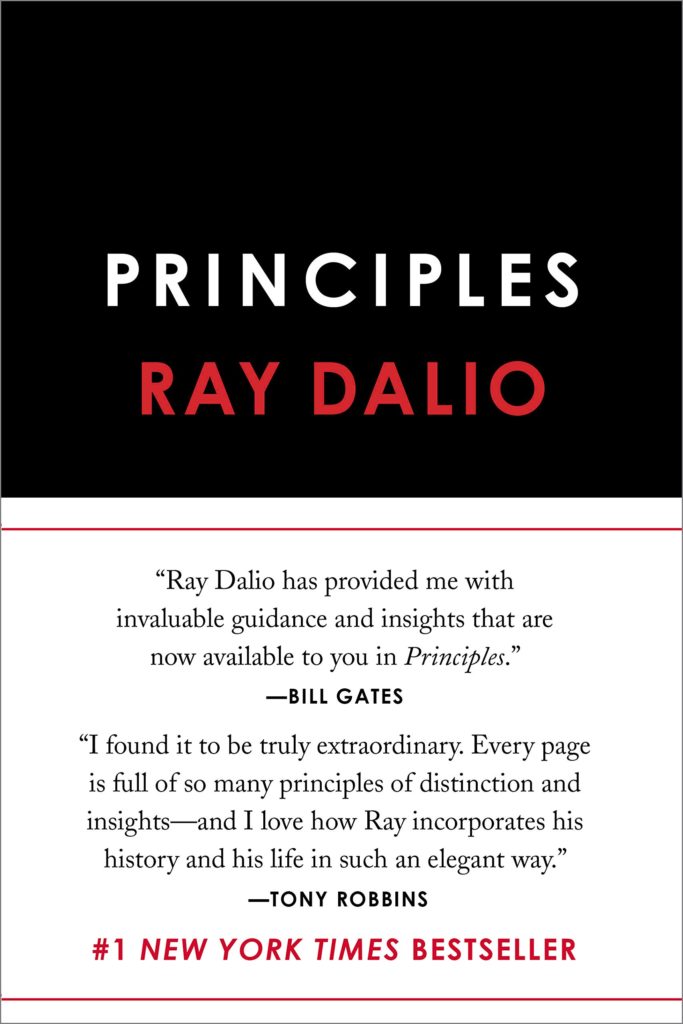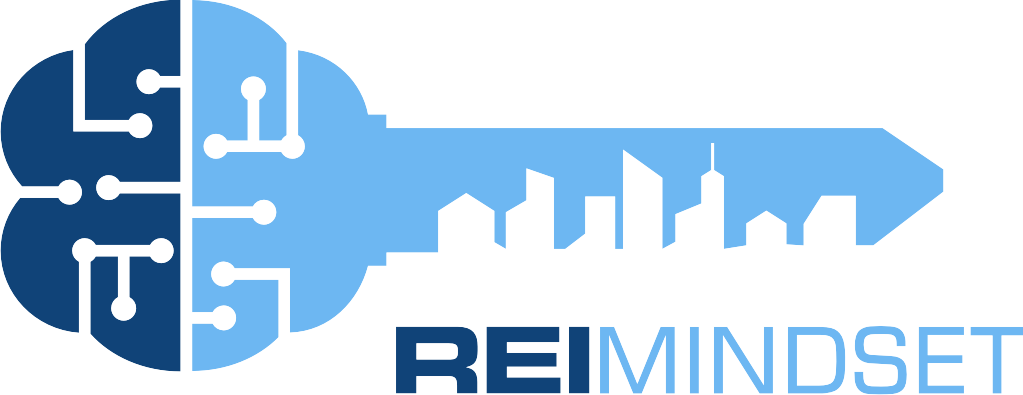

I read a lot. And yet, this is (by far), the single most dog eared and highlighted book I’ve ever had the pleasure to study.
Part autobiography, part textbook, this nearly 600-page tome has lessons in it that seem apparent and simple. In reality, they are extraordinarily powerful, especially if implemented consistently and systematically.
Right now, I’ll admit that there is no way that I can do this book justice in a single post.
My recommendation is to buy it, read it, and download the Principals (In Action) app on your phone. Trust me, this will be a constant reference when you need clarity. Not only is it a great learning tool, but it will help you create your own set of principles to apply in life and business.
“Principles are like recipes for getting what you want out of your life” – Ray Dalio
Rather than talk about my favorite lessons from the book, like I usually do, I’ll discuss three of the broad concepts I found most significant and how I’ve crafted them into everyday real estate investing and life.
Concept 1: Understand People
Nothing great and important can be done without people and collaboration. While we may not be running billion-dollar hedge funds, like Ray, we are still running real estate investing businesses that rely on a number of people, from different professional backgrounds, with distinct mindsets.
Understanding people starts with the realization that we are all different. We should not expect others to think and act the way we do. That expectation is unrealistic and unhelpful.
The way we think is shaped by events and experiences in our lives. Lessons are learned through education, mentorship, and experiences, both good and bad. This creates varied values, ways of thinking, and approaches to problems.
Different does not mean bad. Another person’s point of view can fix our blindspots, make us consider something we had not thought of, and create options. If we know how to use it, the truth that people are different can be an advantage.
Under the concept of understanding people is the notion of “believability”. Simply put, is a person credible based on their experience, track record, skills, and knowledge? This is especially important today where all of us are inundated with information. Our task and skill to develop is the ability to filter for truth.
For example, a new investor sees a light bulb flicker in the kitchen of their rehab project. Clearly, something is not right.
- The Bigger Pockets forum remotely diagnoses, and says, check the lightbulb
- The general contractor toggles the light switch a few times, notices flickering and believes that is the culprit
- The electrician uses a multimeter to test the nearest outlets and finds that the wiring leading into the room is either loose or insecure, creating a poor connection.
Who has the most believability?
The new investor has the least.
The BP forum is filled with intelligent and experienced people, but there isn’t a background check to see what they know, plus it is a remote diagnosis.
The GC has the experience and might have been correct in the past when running into similar problems previously.
However, the electrician with the training, equipment, and experience is the most believable. If the investor is smart, that specialist’s ideas, solutions, and proposals are taken into consideration more than anyone else’s.
I know, that was painfully simple, but it is an easy way to understand believability. However, to implement it, especially when we think we are right and the believable person is the opposite of our thinking is a direct challenge to our ego.
At the end of the day, working with people is a skillset. Sometimes difficult, but remember, overcoming challenges is a team sport. Cultivate meaningful relationships and together do meaningful work.
“If you want to go quickly, go alone. If you want to go far, go together” – African proverb
Concept 2: Making the Right Decision
Sometimes decisions of right or wrong are so obvious it is easy to determine what should be done. Do I pay my investment property’s mortgage this month with the tenant’s rent?
But a change in circumstance and scenario can alter the “right thing” completely. How do I work with my tenant, who lost their job because of the coronavirus, to get this mortgage paid this month?
What is the right decision? This is where Principles shines. In the quest to find the right decision there are other things to consider.
What are the goals here? Ray goes in-depth into goal setting and it is my favorite section of the book, the “5 Step Process to Get What You Want Out of Life”.
For example, the goal in this situation is to have a property that cash flows at $200 dollars per month and appreciates over a 5 year period where it will be sold for profit. Ok, that’s a goal.
Next, what are the root causes? COVID-19 is rampant and social distancing is the best measure to maintain a healthy population and prevent the overwhelm of the healthcare system.
What are the second and third-order effects of any given decision? That question is pure gold! Ask yourself that question for everything!
Well, I can demand the rent and if they don’t give it to me then I start eviction immediately. Nice, now I can get a new paying tenant! Well, hold on, if you think of the second order of events, the following might happen. Now the tenant is upset and will withhold rent, plus there is a temporary stop to evictions. Third-order, when the economy returns and the tenant gets back to work they will further hold back rent, drag the eviction process out, and when they finally leave, trash the unit (going for worst-case scenario here).
In the end, if I only thought through immediate actions then eviction seems like the default decision. However, reviewing second and third-order effects we see it will cost you a good tenant who happens to get caught in a bad situation and a good unit that will further drain the bank account.
To make a good decision we look for the absolute truth. Finding the truth must be more important to us than being right. The truth can hurt our ego, therefore, we must remove our ego from the equation because being right feels better, but finding the truth is more useful.
- Is it true that the tenant cannot pay their rent?
- Is it true they were a good tenant previously?
- Is it true that they are willing to find solutions together like creating a payment plan?
- Is it true that there is some sort of win-win in this scenario?
Lastly, to make good decisions we have to be open-minded. The solutions might require flexibility on our part (remember the removal of ego?).
- The creation of a payment plan
- The possibility of working with the bank
- Perhaps a lease renewal with different terms
- Being open-minded to the solutions that others have successful implemented
There are many possibilities as long as we focus on the goal.
“Good decisions come from experience. Experience comes from bad decisions” – Mark Twain
Concept 3: Constant Improvement and Evolution
If you are reading this, there is no doubt in my mind you are the type of person that strives to improve yourself (and thank you for reading!). How do we create a system that tracks our progress, develops our abilities, hones our mindset, and improves our businesses? How do we accelerate what works and fix what doesn’t?
Think of your business as a machine. Everyone who works in it, all the systems, all the strategic partnerships, are cogs in this machine.
Machines are great because they can be changed, improved, and upgraded to produce better outcomes. Just a small improvement every day in the right direction is powerful.
View this machine from a high-level perspective. Perhaps you’ve heard the saying, working on your business rather than in your business.
Yes, you can turn a screwdriver, but is that a better use of your time over finding and screening team members that can turn that same screwdriver? Are you doing the most important work or just the next task?
“Distinguish between you as the designer of your machine and you as a worker with your machine” – Ray Dalio
Use your goal as guidance for creating a plan, then execute that plan to reach the goal. Remember there can be many paths to reach that goal.
Constant truthful and believable feedback will create a virtuous cycle of identifying problems, solving them, and moving forward. The goal is greater than any single task but the people and the culture grow the business.
There are only a handful of books that get to be life changers. This is one. As someone actively and constantly building my business it is invaluable to get a look at the mindset and best practices of the top minds in their industry. I know that Principles will be a constant reference that I will read over and over.
Go, pick this up. Read and implement.




Leave a Reply